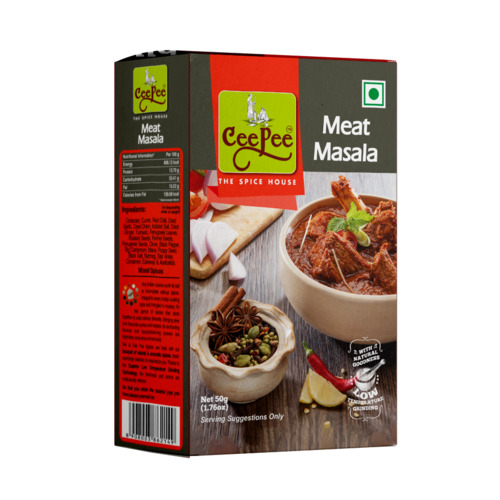Indian cuisine is renowned for its rich flavors, aromatic spices, and diverse range of dishes. Beyond its delicious taste, Indian food also offers a plethora of health benefits, making it a popular choice for those seeking a nutritious and satisfying meal. In this article, we delve into the health advantages of Indian cuisine, with a special focus on two popular spice blends – Chicken Masala and Meat Masala.
A Symphony of Spices: The Power of Indian Spices
One of the key factors contributing to the health benefits of Indian cuisine is the abundant use of spices. Many of these spices not only enhance the taste of the dishes but also pack a punch in terms of nutritional value. Turmeric, a staple in Indian cooking, contains curcumin, known for its anti-inflammatory and antioxidant properties. Cumin, coriander, and cardamom are other spices commonly used, each offering its unique set of health benefits.
Chicken Masala: A Flavorful Boost with Lean Protein
Chicken Masala, a popular spice blend used in Indian cuisine, elevates the taste of chicken dishes while providing a healthy dose of lean protein. Chicken is an excellent source of protein, essential for muscle development and repair. The combination of spices in Chicken Masala not only enhances the flavor but also contributes additional health benefits. Garlic, a common ingredient in this spice blend, is known for its immune-boosting properties, while ginger aids in digestion.
Incorporating Chicken Masala into your meals not only adds a burst of flavor but also ensures you’re getting a well-rounded, protein-rich dish with added health benefits.
Meat Masala: Savoring Nutrient-Rich Red Meat
Meat Masala, another spice blend widely used in Indian cooking, complements red meat dishes and adds a depth of flavor. Red meat, when consumed in moderation, is a good source of essential nutrients such as iron, zinc, and B vitamins. The spices in Meat Masala, including cloves, cinnamon, and black cardamom, not only enhance the taste but also contribute to the overall nutritional value of the dish.
It’s important to note that the spices in both Chicken Masala and Meat Masala are not only chosen for their flavor profile but also for their potential health benefits. For instance, cloves are known for their antimicrobial properties, while cinnamon may help regulate blood sugar levels.
Balancing Act: The Importance of Vegetables and Legumes
While meat dishes play a significant role in Indian cuisine, a balanced meal also includes an array of vegetables and legumes. Vegetables like spinach, tomatoes, and eggplants are commonly used, providing essential vitamins, minerals, and dietary fiber. Legumes, such as lentils and chickpeas, are excellent sources of plant-based protein and contribute to the overall nutritional balance of Indian meals.
The Role of Healthy Fats in Indian Cuisine
Contrary to the misconception that all Indian food is rich and heavy, many traditional dishes incorporate healthy fats. Ghee, a clarified butter commonly used in Indian cooking, contains healthy fats that can be beneficial for heart health. Additionally, coconut oil, a staple in South Indian cuisine, is rich in medium-chain triglycerides (MCTs), known for their potential to boost metabolism.
Mindful Eating: The Indian Tradition
Beyond the specific ingredients and spices, the tradition of mindful eating is deeply ingrained in Indian culture. Meals are often shared with family and friends, and the focus is not just on the food but on the entire dining experience. This approach to eating encourages slower and more mindful consumption, allowing for better digestion and appreciation of the flavors.
Conclusion: Embracing the Wholesome Goodness of Indian Cuisine
In conclusion, Indian cuisine offers a delightful marriage of taste and health. The incorporation of flavorful spice blends like Chicken Masala and Meat Masala adds not only taste but also a myriad of health benefits to your meals. From the nutrient-rich properties of red meat to the anti-inflammatory effects of spices, Indian cuisine provides a holistic approach to eating well.
As you savor the diverse and delicious offerings of Indian cuisine, remember that the key lies in moderation, balance, and the joy of sharing a wholesome meal with loved ones. So, the next time you indulge in a plate of Chicken Masala or savor a dish seasoned with Meat Masala, know that you are not just treating your taste buds but also nourishing your body with the goodness of Indian flavors.


